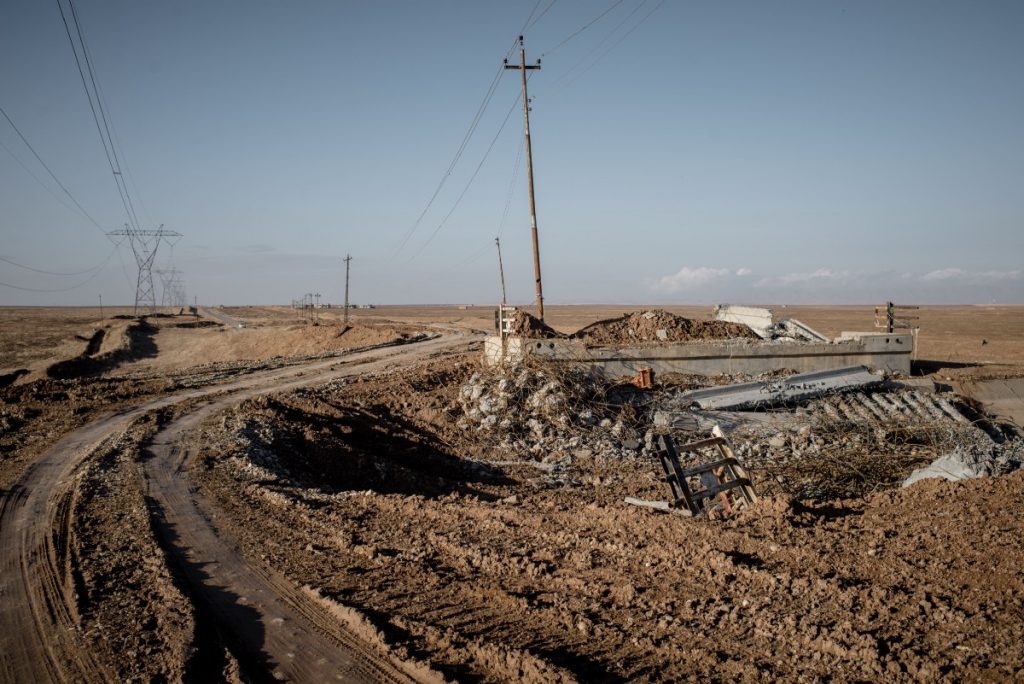Join GlobalBizzNetwork and start your international business network today.
Iraq

Despite the serious efforts of the Iraqi Government to reform the Iraqi state, business conditions in Iraq remain challenging. Corrupt practices are fuelled by the overwhelming dominance of the state economy, which leaves little room for the private sector to develop. A lack of decision making capability, an almost total reliance on oil revenues and overly complicated, cumbersome and often badly organised state administration seriously threaten Iraqi and international private companies and allow corrupt practices to flourish. International companies particularly suffer in respect to customs, visa and work permits, taxation and legal litigations.
Under the leadership of Prime Minister Abadi, who stated that following the defeat of Daesh the next fight he will lead would be against corruption, the Iraqi Government is making real efforts to reform the state in order to achieve better governance and provide the private sector with the right environment to grow. IBBC and its members are actively supporting the Government in this essential task. We know that only the private sector is able to provide the jobs and future for an increasingly young and growing Iraqi population.
Iraq does not need to be a rentier economy wholly relying on oil revenues and imports. Not so long ago Iraq possessed a flourishing agricultural and industrial sector and was a model for health care and education, exporting its goods and services throughout the region. We believe that in time Iraq will reclaim her position as a predominant economy and a cultural hub of the Middle East.
Despite all the difficulties, companies conduct profitable business in Iraq. The country continues to offer huge opportunities, which are likely to grow in the present international climate, underpinned by increased economic and political interest from the GCC countries, which are opening up to Iraq and planning for multibillion dollar investments into the country.
Iraq’s economy is dominated by the oil sector, which has provided about 95% of foreign exchange earnings in modern times. In the 1980s, financial problems caused by massive expenditures in the eight-year war with Iran and damage to oil export facilities by Iran led the government to implement austerity measures, borrow heavily, and later reschedule foreign debt payments; Iraq suffered economic losses of at least $80 billion from the war. After the end of hostilities, in 1988, oil exports gradually increased with the construction of new pipelines and restoration of damaged facilities.
Since mid-2009, oil export earnings have returned to levels seen before Operation New Dawn and government revenues have rebounded, along with global oil prices. In 2011 Baghdad probably will increase oil exports above the current level of 1,900,000 bbl (300,000 m3) per day as a result of new contracts with international oil companies, but is likely to fall short of the 2,400,000 barrels (380,000 m3) per day it is forecasting in its budget. Iraq’s recent contracts with major oil companies have the potential to greatly expand oil revenues, but Iraq will need to upgrade its oil processing, pipeline, and export infrastructure to enable these deals to reach their potential.
An improved security environment and an initial wave of foreign investment are helping to spur economic activity, particularly in the energy, construction, and retail sectors. Broader economic improvement, long-term fiscal health, and sustained increases in the standard of living still depend on the government passing major policy reforms and on continued development of Iraq’s massive oil reserves. Although foreign investors viewed Iraq with increasing interest in 2010, most are still hampered by difficulties in acquiring land for projects and by other regulatory impediments.
Sectors
Agriculture
Historically, 50 to 60 percent of Iraq’s arable land has been under cultivation, Because of ethnic politics, valuable farmland in Kurdish territory has not contributed to the national economy, and inconsistent agricultural policies under Saddam Hussein discouraged domestic market production. Despite its abundant land and water resources, Iraq is a net food importer. Under the UN Oil for Food program, Iraq imported large quantities of grains, meat, poultry, and dairy products.
Forestry, fishing, and mining
Throughout the twentieth century, human exploitation, shifting agriculture, forest fires, and uncontrolled grazing denuded large areas of Iraq’s natural forests, which in 2005 were almost exclusively confined to the north eastern highlands. Most of the trees found in that region are not suitable for lumbering. In 2002 a total of 112,000 cubic meters of wood were harvested, nearly half of which was used as fuel.
Energy
As one of the three most oil-rich countries in the world, Iraq has the resources for complete energy independence. By world standards, production costs for Iraqi oil are relatively low. In 2007, hydrocarbon industries accounted for well over 70 per cent of the Iraqi economy and 95 per cent of the government’s revenues. Diversification of the economy into non-hydrocarbon industries remain a long-term issue.
Finance
Iraq’s financial services have been the subject of post-Hussein reforms. The 17 private banks established during the 1990s were limited to domestic transactions and attracted few private depositors. In 2004 three foreign banks received licenses to do business in Iraq.
Private security
Because of the danger posed by Iraq’s ongoing insurgency, the security industry has been a uniquely prosperous part of the services sector.
Retail
In the early post-Hussein period, a freewheeling retail trade in all types of commodities straddled the line between legitimate and illegitimate commerce, taking advantage of the lack of income tax and import controls.
Tourism
The Iraq tourism industry, which in peaceful times has profited from Iraq’s many places of cultural interest (earning US$14 million in 2001), has been dormant since 2003. Despite conditions, in 2005 the Iraqi Tourism Board maintained a staff of 2,500 and 14 regional offices.







